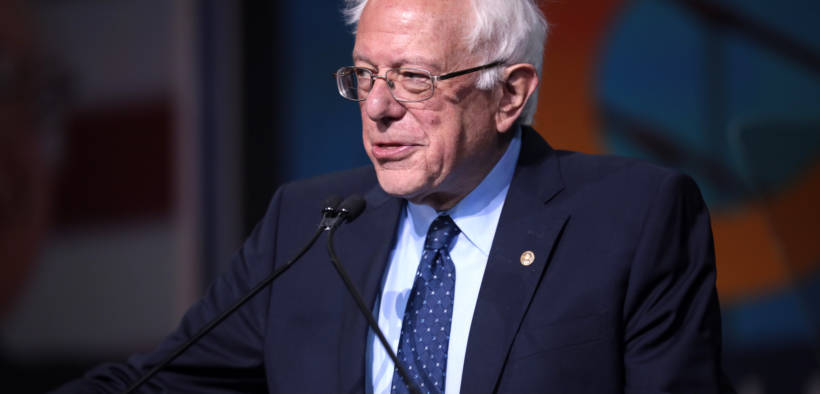Labour’s Loss Doesn’t Mean a Leftist Can’t Win

Treating Jeremy Corbyn and Labour’s defeat as a “harbinger” of doom for anyone in his mold overlooks the 800-pound gorilla of Brexit, a significant complication to traditional two-party politics.
Despite Boris Johnson’s best efforts, his Conservative Party won in a landslide in the recent 2019 United Kingdom general election.
I say this because while Johnson is the bumbling incumbent prime minister whose role in advocating for Brexit on false pretenses is widely known at this point and while his government has yet to “get Brexit done,” this latest vote seemed to be more of a referendum on Labour leader Jeremy Corbyn than anything.
Corbyn, assailed by critics on the left and right in the lead-up to this election, evidently could not shake the lack of public faith he and his party have engendered. Many Labour supporters would be quick (and perhaps justified) to point to British media’s vilification of Corbyn, not to mention the notion Johnson is a con man.
Still, the accusations of anti-Semitism dogging Corbyn’s party and his perceived inability or willingness to deal with them, as well as admonishment of Labour’s middling and muddied stance on Brexit, appear to have been too much for Labour to overcome. Corbyn will reportedly step down in the spring when his successor as party leader will be chosen. PM Johnson, meanwhile, has an 80-seat majority in the House of Commons by which to carry out his vision for Brexit. Whatever that is. Because he totally has a plan that will not meet any pushback from the EU. Right.
With this result now in the books, most of America’s attention now turns back to the impending 2020 election and the clusterf**k the campaign has already been. Of course, with the Conservative Party’s drubbing of Labour fresh in our minds, it’s no wonder U.S. media has already taken to making the connection between the socialist Corbyn’s defeat and a potential loss for leftists next November.
Michael Tomasky, writing for The Daily Beast, for one, asks and answers, “What Do the UK Election Results Mean for Democrats? Nothing Very Good.” A side-by-side photo mashup of Bernie Sanders and Jeremy Corbyn looking mournful and tinted blue accompanies the article, driving home the already-painfully-clear point.
It’s not just journos and “contributors” either. Both Joe Biden and Mike Bloomberg have taken the UK general election results as a “catastrophic warning” for Democrats not to move too far to the left. Donald Trump, the Boris Johnson of the USA, meanwhile, has professed he believes the outcome is a “harbinger” for things to come in the States. These sentiments coming from the president are no surprise. Although the use of the word “harbinger” is, quite frankly. Did he look that up before he said it? Or did he have an aide feed it to him before he spoke to reporters? I have questions. Many, many questions.
Trump’s limited vocabulary aside, it’s alarming to see how quickly candidates and pundits alike are jumping on the “Labour lost and so will the left” narrative. To be fair, it is a compelling one following the events of 2016. The Leave campaign’s narrow victory in the Brexit referendum presaged Trump’s slender electoral win over Hillary Clinton in the U.S. presidential election. Conservative and far-right candidates have been winning elections across the globe in the past few years too, whether it be Jair Bolsonaro in Brazil or Viktor Orbán in Hungary or any number of figures with a voice at the national level of the countries from which they hail.
So, if someone like Bernie Sanders were to lead the Democratic Party ticket, this would all but hand the presidency to Trump, right? Not necessarily. Christo Aivalis, Canadian historian, media commentator, and writer, in acknowledging the pain of Labour’s loss in the UK general election, highlighted several reasons why Sanders and Jeremy Corbyn are not perfect analogs in a video essay titled “Don’t let Neoliberals use Jeremy Corbyn’s Defeat as an Attack on Bernie Sanders.”
In the essay, Aivalis highlights three salient points as to why Sanders is no Corbyn, despite Sanders being Corbyn’s closest spiritual comparison, so to speak, in the U.S. presidential race:
Brexit: Quite simply, there is no overarching issue facing the United States with the magnitude of a Brexit as it is with the United Kingdom. This is not to say America doesn’t have its issues—far from it actually—nor is it to suggest there aren’t legitimate points of worry on a global scale (cough, climate crisis, cough). Even so, there is no analogous central subject that binds American voters as it does their UK counterparts. Britain’s very economic future is tied to what kind of Brexit is negotiated and its subsequent ability to reach a new deal with the European Union, if possible.
With this in mind, even as the impeachment process unfolds, there is nothing quite like Brexit in the U.S. to fundamentally disrupt the workings of the left-right paradigm. To quote Aivalis, “Trying to graft the lessons from the British election onto the United States with Brexit alone already makes that whole idea suspect.”
Popularity: As much as leftists outside of the UK might revere Corbyn or at least understand how Corbyn’s positions are better for his country’s denizens, the man and his party have seen their popularity wane of late in part due to their positions on Brexit and charges of anti-Semitism within the ranks. Corbyn in particular has met criticism for his seeming indifference on the latter in past remarks, in addition to newer repeated denials which some leftists see as giving too much credit to a smear campaign designed to paint his anti-Zionist attitudes as anti-Semitic.
By contrast, Americans really seem to “feel the Bern.” Sanders consistently rates among the most popular politicians in the United States. Since entering the mainstream with his bid in 2016, the independent running as a Democrat has appealed to Democrats, independents, and even some Republicans with his attention to taking on corporate greed and addressing widening income and wealth inequality.
Even without strict adherence to policy positions both domestic and foreign, though, and even with a chorus of detractors among hardline conservatives and neoliberals, Sanders’ esteem hasn’t plummeted to the near-toxic levels of Corbyn’s. Quoting Aivalis again, “Personal popularity isn’t everything; it’s not the only issue. But especially when you’re talking about running for president, their personal approval rating in the minds of people really does matter.
Polls: OK, I get it—polling in 2016 was a disaster. Experts and talking heads predicted a narrow win for Vote Remain in the Brexit referendum vote. That did not happen. In the U.S. presidential election, Hillary Clinton was the odds-on favorite to emerge triumphant in her showdown with Donald Trump. The opposite occurred. With pollsters apparently getting things so wrong, some voters began to cast aspersions on survey science altogether. You can’t trust the polls. You can’t trust politicians. Nothing is what it seems.
Except in 2019, Boris Johnson and his Conservative Party were expected to win and they did. It might not have been been forecast as quite the impressive showing that it turned out to be for the Tories, but the outright victors were correctly assessed. In advance of 2020, several polls indicate a handful of Democrats beating Trump head-to-head, with Bernie beating the incumbent pretty much across the board.
In Aivalis’s words once more, “While the polls were accurate in projecting a Labour defeat under Jeremy Corbyn, the polls thus far in the United States all seem to be pointing to a victory for Bernie Sanders and a rather large one at that…If you want a bold, left-wing choice, you can make that choice with Bernie Sanders in the United States and not have to worry about handicapping yourself electorally.”
Christo Aivalis only makes these few arguments in his defense of Bernie Sanders or someone who fits the bill of a progressive like Elizabeth Warren. For their brevity and simplicity, however, these three key points are more than sufficient.
Treating Jeremy Corbyn and Labour’s defeat as a “harbinger” of doom for anyone in his mold overlooks the 800-pound gorilla of Brexit, a significant complication to traditional two-party politics. Corbyn was also deeply unpopular, a quality shared more by Donald Trump than someone like Sanders.
Furthermore, surveys of prospective American voters aren’t favorable for Trump. Prior to November 2016, Trump at least had the benefit of the doubt that people could not be certain of what he would do as president. Now that he’s had some three years under his belt, the cat’s out of the bag. Sure, history favors the incumbent. That said, Trump is no normal president and he might not be so lucky this time around.
All this can be argued in service of refuting a narrative that only a moderate can win a general election—and that’s before we even get to the recent instance of the moderate losing a general election to a man who had and may still not have no idea who Frederick Douglass is and who would have his supporters believe wind turbines cause cancer.
Unmoved by their disappointment in 2016, establishment Democrats are content to go back to the well in 2020 with another centrist, getting behind a candidate without much in the way of a platform and playing not to lose rather than to win. The safe approach is often a poor strategy in sports when in the midst of a close match, and in anticipation of another hotly-contested election, coming with anything less than a full effort is ill-advised.
The postmortem pile-up on Jeremy Corbyn is an understandable one, particularly for those critics who reject various policy stances of his amid perceived character flaws. As bad as the results from the UK general election were, though, there are appreciable differences to be had in the trip across the pond. What’s more, as ordinary Americans continue to feel the pinch from laboring within a system rigged against their interests, a true embrace of progressive politics will be essential to creating a more just society, and with that, a Democratic Party that lives up to its name.
“Too far left?” As Alexandria Ocasio-Cortez would be keen to say, America’s progressives are bringing the party home. At the end of the day, embracing a leftist agenda might just be the country’s ticket to avoiding four more years of President Donald Trump.







